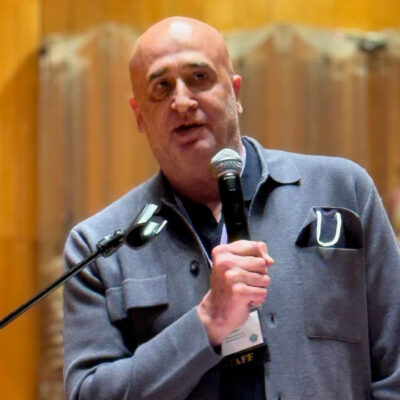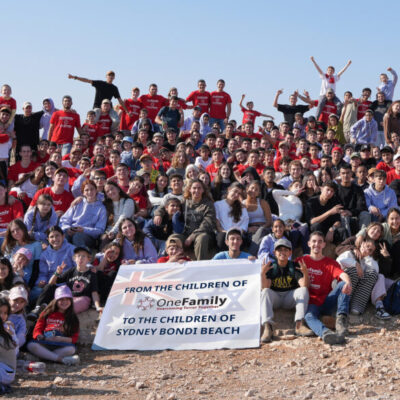SpaceIL – The True Spirit of Philanthropy

By David Gappell
This week Ha’aretz broke a story in The Marker (Hebrew) that headlined: “Trouble in the first Israeli spacecraft: The billionaire left, 30 million dollars still to find.” The story highlights the resignation of Israeli philanthropist Morris Kahn as the chairman of the board of SpaceIL – an ambitious attempt to see Israel become only the 4th country to make a soft landing on the moon as part of the Google LunarX Prize. It would not be the first time that a noble philanthropic cause was rocked with turmoil hastening the departure of a philanthropic leader, however the story of SpaceIL is extraordinary and filled with many learnings that can benefit donors and philanthropy professionals.
The group of Israeli and American philanthropists that have joined SpaceIL have demonstrated the true essence of philanthropy at its best. It is about becoming inspired by an ambitious goal, believing in the power of the people behind it and being willing to take a risk – a risk commensurate with the goal that is to be achieved. In this case, the secondary goal is to have Israel make history by becoming only the 4th country to make a soft landing on the moon and the first country to achieve this as part of a non-governmental effort. The primary goal is to reach every pupil in Israel and to inspire a new generation of Israeli scientists and engineers, and as such to invest in Israel’s future and in its most precious resource: its people. There are certainly potent added benefits – advancing Israel’s aerospace industry, maintaining Israeli leadership as a center of technological innovation and creativity, and providing another element of soft diplomacy in a world that continues to question Israel’s right to exist.
The mere idea of an Israeli nonprofit seeking to reach the moon is audacious. SpaceIL’s first chair, Yanki Margalit is quoted as saying that they were all childish in thinking that they could achieve this lofty goal in only two years and with an unrealistically small budget. Perhaps he is right, however I do not think that being childish in this case should be used in the pejorative. It is precisely that naïve sense of boundlessness that allows us to dream and to make the impossible, possible.
Three very talented engineers in their 20’s met over a beer and sketched out on a napkin their idea on how to reach the moon and win the Google LunarX Prize competition, dedicating the $20M prize money to science education in Israel. They were able to attract a group of philanthropists, engineers and aerospace experts inspired by their vision and their commitment to educating future generations. We were all excited by the idea that Israel would make history by making a controlled landing on the moon, alongside the U.S., Russia and China. Led by Israeli philanthropist Morris Kahn, all of the funders were willing to take the leap of faith with them in the belief that we can achieve whatever we set our sites on – even landing on the moon.
It takes bold philanthropy to be willing to lead an effort where the measurement of success is so crystal clear. How much easier it is to fund those areas where success or failure is subject to interpretation; where the metrics of measurement are less accurate and more easily manipulated. In the case of SpaceIL there is no room for interpretation. Either you have landed on the moon, or you have not. Success or failure will be absolute. To be willing to back such a project requires a combination of vision, ambition, ideology and chutzpah – the very qualities that led to the creation of modern Israel and that have kept Israel alive ever since.
As a foundation professional who has been involved in countless projects here on planet earth over the last 25 years, I can tell you that it is often difficult to plan and manage the budgets of some of the more mundane initiatives. When the Schusterman Foundation first entered as a partner with Morris Kahn in SpaceIL they knew full well that they were attempting ‘to boldly go where no person has gone before’. What began as a $36M budget has grown into an $80M budget. Other funders have joined and existing funders have added more, bringing the total funds raised to $55M. This has enabled the SpaceIL team to overcome the seemingly insurmountable technical challenges, making them the first team to sign a launch contract and the team with the greatest chances of success. As they enter the final stretch, the unknowns have been minimized and it is now a question of completing that which has been started. At the same time that he has stepped down as the chair of SpaceIL, Morris Khan has pledged an additional $10M in a 1:2 match – this is unheard of among Israeli philanthropists. The terms of the competition limit government funding at 10% which the Israeli government will likely provide. It is now up to others to help create another Israeli miracle, to embrace the essence of philanthropy and to help a new generation of talented Israelis do what Israel has done since its inception: to make the impossible, possible.
David Gappell is on the board of SpaceIL. At the end of this year he will be stepping down as the director of the Schusterman Foundation – Israel, a position that he has held for the past 12 years.

 Add EJP on Google
Add EJP on Google










